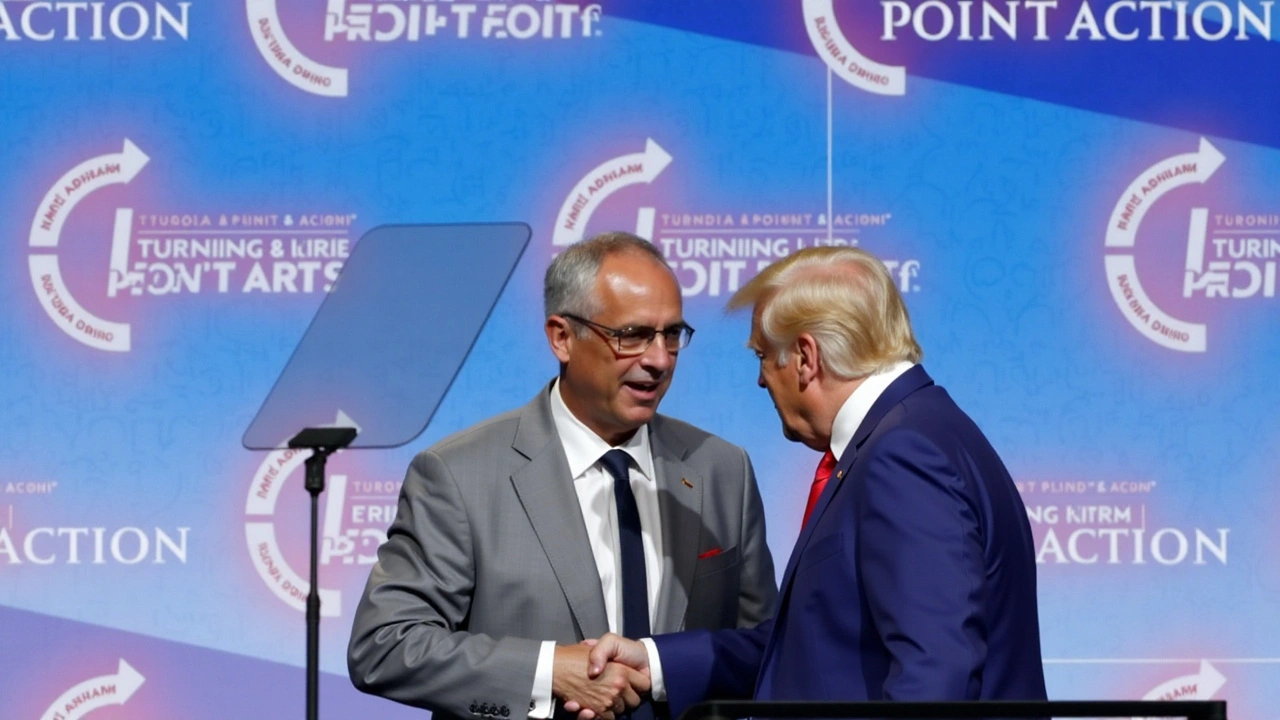Introduction: A New Chapter in U.S. Health Policy?
The recent victory of Donald J. Trump in the presidential election marks the beginning of what could be a transformative era for federal health policy. Central to this conversation are the potential changes that could take place within the Food and Drug Administration (FDA). Trump's influence, combined with the input from figures such as Robert F. Kennedy Jr. (RFK Jr.), adds an intriguing layer to the landscape of U.S. healthcare. Trump's previous term was characterized by a number of attempts to alter key healthcare provisions, most notably the Affordable Care Act. However, the 2024 campaign was characterized less by concrete policy proposals and more by overarching concepts regarding changes in health policy. This has left many stakeholders speculating about future regulatory and health policy decisions under a renewed Trump administration.
RFK Jr.: A Potential Catalyst for Change
Robert F. Kennedy Jr., a prominent voice in Trump's campaign, is expected to play a pivotal role in shaping health policy. Known for his skepticism toward some widely accepted public health measures, RFK Jr.'s influence could potentially redefine federal health policies, particularly concerning vaccines and other public health initiatives such as water fluoridation. With RFK Jr. potentially occupying a significant role in Trump's administration, there is reasonable speculation that public health strategies might shift towards deregulation. This change could impact several sectors, including the role of vaccinations in public health policy and regulations concerning prescription drugs.
Practical Implications: What Could Change?
Should Trump's administration move forward with the appointment of RFK Jr. to an influential role, the ramifications might be broadly felt throughout the healthcare industry. Concerns include a possible deregulation of healthcare services, potentially leading to restricted access to certain health services and medications, such as those pertaining to abortion. Trump's pledge not to enforce a national abortion ban contrasts sharply with the broader speculated changes that could limit access to medication abortion across the country. This uncertain stance adds layers of complexity and concern for those advocating for public health's role in policy and regulation.
The Broader Health Policy Landscape
Trump's first presidency saw various attempts to repeal and replace the Affordable Care Act, though those efforts were never fully realized. Moving forward, his stance on health policy, potentially influenced by RFK Jr., could alter the broader health landscape. The implications extend to vaccination efforts, prescription medication policies, and the availability of affordable healthcare. By the same token, Vice President Kamala Harris during her campaign focused on strengthening the ACA and expanding benefits, creating a stark contrast in health policy goals between the two political figures. With the potential addition of RFK Jr., Trump's second term stands as a time of anticipated change and perhaps significant upheaval in the field of public health policy.
Potential Effects on Public Health Efforts
The influence of RFK Jr., should he indeed play a role under Trump's administration, brings to focus the challenges that may arise for public health advocacy. Vaccination, one of the most critical components of contemporary public health strategy, could face increased skepticism at the federal level. In addition, RFK Jr.'s often controversial views on water fluoridation contribute to a potential shift in how public health initiatives might be perceived and executed. If these ideas gain traction within Trump's administration, the role of the FDA in regulating health-related products like vaccines and fluoride may transform significantly, impacting population-wide health initiatives.

Conclusion: Navigating Health Policy Changes
As Trump steps into his second term, with potential influential figures like RFK Jr., a significant shake-up in health policies seems possible. The FDA, a cornerstone of U.S. health regulation, may undergo transformative changes affecting everything from drug approval processes to health program implementations. Stakeholders within the health industry and public health community are cautiously navigating this uncertain terrain, aware that the coming years could redefine how health policy operates at both federal and individual levels. As the direction of U.S. health policy under Trump's second administration unfolds, the impact on public health, regulatory practices, and federal healthcare initiatives remains highly scrutinized and keenly anticipated by many.
